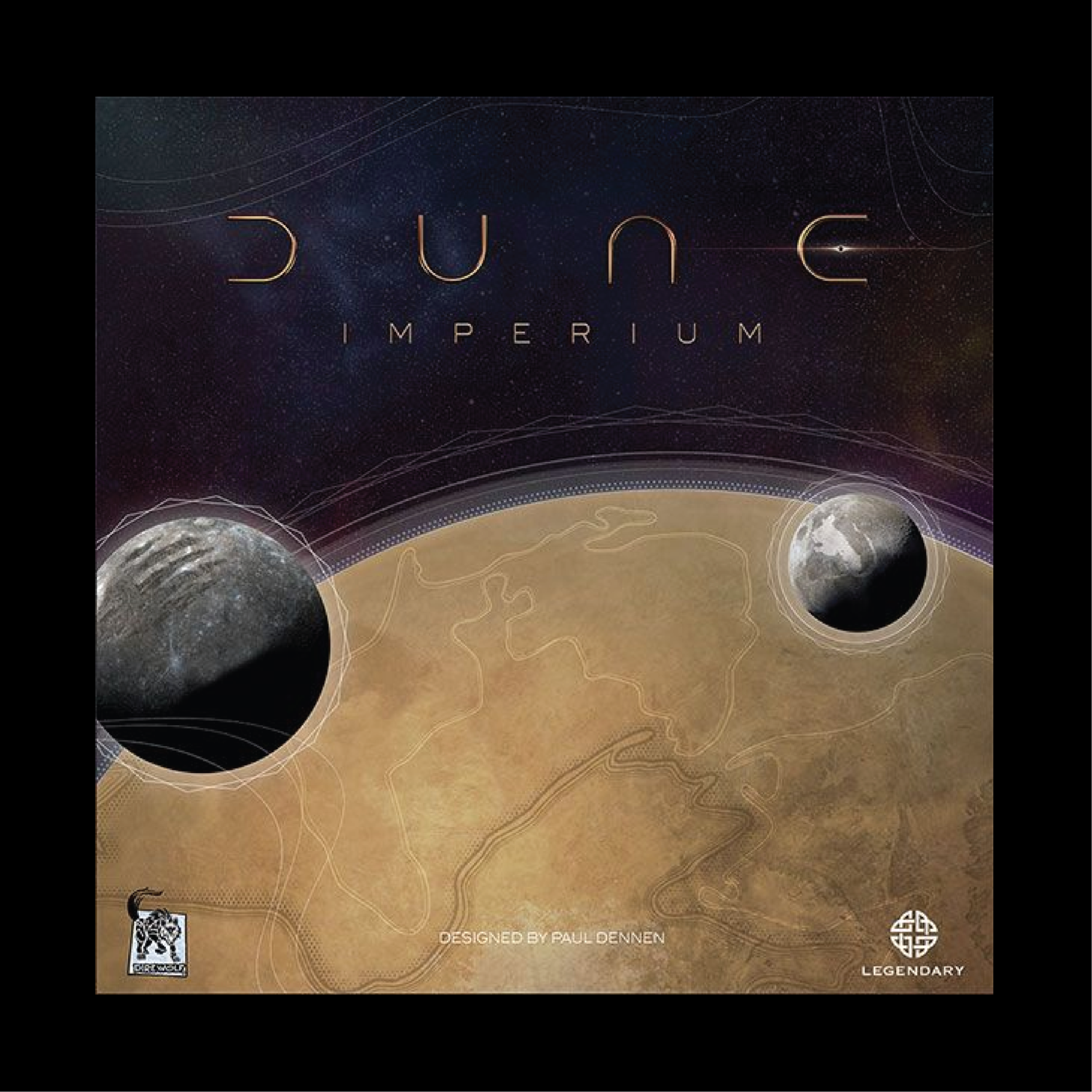Dune: Imperium is a deck-building/worker placement game where players act as important political figures navigating the world of Dune. The game is fairly complex when you first learn it, but as you play the rules become very intuitive.
The goal of the game is to have the most victory points (VP), and the game ends once someone reaches 10 VP. Various effects can give players VP after this happens, but a basic goal is to be the first to reach 10 VP. VPs are earned through various methods ranging from forming alliances with factions to simple card effects.
The game proceeds in rounds, and each round is split into two parts. Players start each round by drawing 5 cards. Then, players draw 5 cards and play cards from their hands in turn which allow them to place one of their workers (there are 2 or 3 per round) on the board and get the benefits of that square. They also receive the top benefits from the card they play. At any point, a player may stop placing workers and reveal their hand. Once they do this, they receive the bottom benefits from the cards they reveal, which typically hold a Persuasion value. The Persuasion values allow the player to purchase cards from five revealed ones. After every player has done this, a combat sequence occurs where players battle armies for the rewards on a combat card. After this, workers and armies reset, and players discard all of the cards they had in hand or in play that round.
The game is daunting to learn; there is a lot to keep track of. There are 2 different currencies (Persuasion for buying cards, Solari for buying other things), 3 different resources (spice, water, and armies), and both deck-building and worker placement, requiring strategy in both regards. However, where the game succeeds is in keeping these aspects distinct in gameplay.
When players are placing workers, they only really need to worry about the possible placements and how those can benefit them. Spice can be sold for Solari or used for other advanced placements. Water costs a whole worker to get, but is a good option as it benefits future turns. Persuasion can basically be disregarded until a player reveals their cards. From a learnability standpoint, the game does surprisingly well for having so many moving parts.
The game can be played by 1-4 players, but I have played with 2 and 3. With fewer players, the game has built-in AI characters to help keep things balanced. In the 2 player variant we had an AI, but I felt like it just stole a lot of the spice we would have wanted to use and cleaned up the battles way better than a human would. That being said, the AI did not detract from the game, and I enjoyed having an AI available to beat my opponent in battles I couldn’t afford to enter into. The 3 player game was balanced very well.
One aspect of Dune: Imperium that I felt detracted from the game was the existence of Intrigue cards. These are a type of card you can get through a few different worker placements which provide secret special effects for the player who has them. These effectively act like trap cards from Yu-Gi-Oh! in the sense that they are face down until players activate them at any time on their turn. Without these cards, the game is actually fairly deterministic, other than for the randomness present in deck shuffling which still feels kind of earned (you made the deck). These cards add a little too much randomness to the point that the game can turn significantly from a lucky draw. I feel like I might like these cards more if they were face-up at all times, so players could see which one they were getting and know what other people have. If the pile ever stagnated with a bad top card, there could be other effects which artificially remove the top card.
I really enjoyed playing Dune: Imperium. Although I don’t recommend it for newcomers to deck-building or worker placement games, I do feel that players with a few of these games under their belt should be able to learn the game if they give it enough time.
